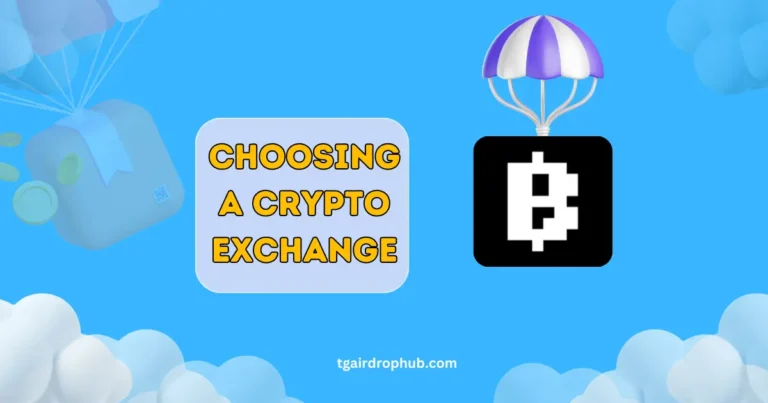Blum Task Answer Node What’s Crypto DEX?
When it comes to cryptocurrency, you may have heard the term DEX thrown around a lot. But what exactly does it mean? Let’s dive into what a Crypto DEX is, how it works, and why it might be the right choice for you if you want to trade cryptocurrencies.
Here’s a quick look at the question and answer for a better understanding:
| Question | Answer |
|---|---|
| What’s a Crypto DEX? | DEXXX |
What is a Crypto DEX?
So, what’s the deal with a Crypto DEX? It stands for Decentralized Exchange, which is a platform where you can trade cryptocurrencies without needing to go through a central authority or company. Unlike traditional exchanges where a company manages all the trades, a DEX allows users to trade directly with each other.
Let me explain with an example. Imagine you want to trade Bitcoin for Ethereum. On a regular exchange, you would have to trust the platform to handle your trade and your funds. But with a DEX, you keep control of your coins the whole time. Everything is handled by smart contracts, which are like digital agreements that automatically do the job when certain conditions are met.
Why Would You Use a DEX?
So, why would someone choose to use a Crypto DEX instead of a traditional exchange? Here are a few reasons:
- More Control: When you trade on a DEX, you control your assets. You don’t need to trust a company with your funds, which gives you peace of mind.
- Privacy: DEXs don’t require you to register or give out personal information, making them a popular choice for people who value their privacy.
- Security: Since you’re not leaving your crypto with a third-party exchange, there’s less chance of someone hacking the platform and stealing your funds.
- Lower Fees: DEXs usually have lower fees because there’s no middleman. This can be a big advantage if you trade often.
How Does a DEX Work?
To help you understand, here’s a simple breakdown of how a Crypto DEX works:
- Smart Contracts: These are self-executing contracts where the terms of the agreement between buyer and seller are written directly into code. Once both parties agree to the conditions, the trade is automatically processed.
- Liquidity Pools: These are pools of funds that allow you to trade. When people add their crypto to these pools, they help provide liquidity to the DEX, making it easier for everyone to trade.
- Decentralized: Unlike traditional exchanges that are controlled by a single company, DEXs are managed by a network of computers (nodes) running the same software.
It might sound a bit complicated, but the point is: on a DEX, you can trade securely without needing a middleman. Your assets stay with you until the trade is made.
The Pros and Cons of Using a DEX
While DEXs have many benefits, they aren’t perfect for everyone. Here’s a quick look at the pros and cons:
Pros:
- Complete control over your funds.
- Higher privacy with no need to register.
- Lower fees for trades.
- More security because there’s no central authority to target.
Cons:
- Slower transactions: Because everything is decentralized, trades can take longer to process.
- Limited customer support: If something goes wrong, there may not be a customer service team to help you out right away.
- Liquidity issues: Sometimes, DEXs can have less liquidity, meaning it might be harder to find someone to trade with.
Conclusion
In the world of cryptocurrency, choosing a Crypto DEX can be a smart move for those who value control, privacy, and security. However, just like anything, it’s important to understand both the pros and cons before diving in. If you’re someone who likes to have full control over your assets and isn’t afraid to learn a bit about smart contracts and liquidity pools, a DEX might be perfect for you!
By using a DEX, you can enjoy more privacy, lower fees, and better security. But always remember: like everything, it’s important to do your research before using a platform. Happy trading! 🚀







One Comment